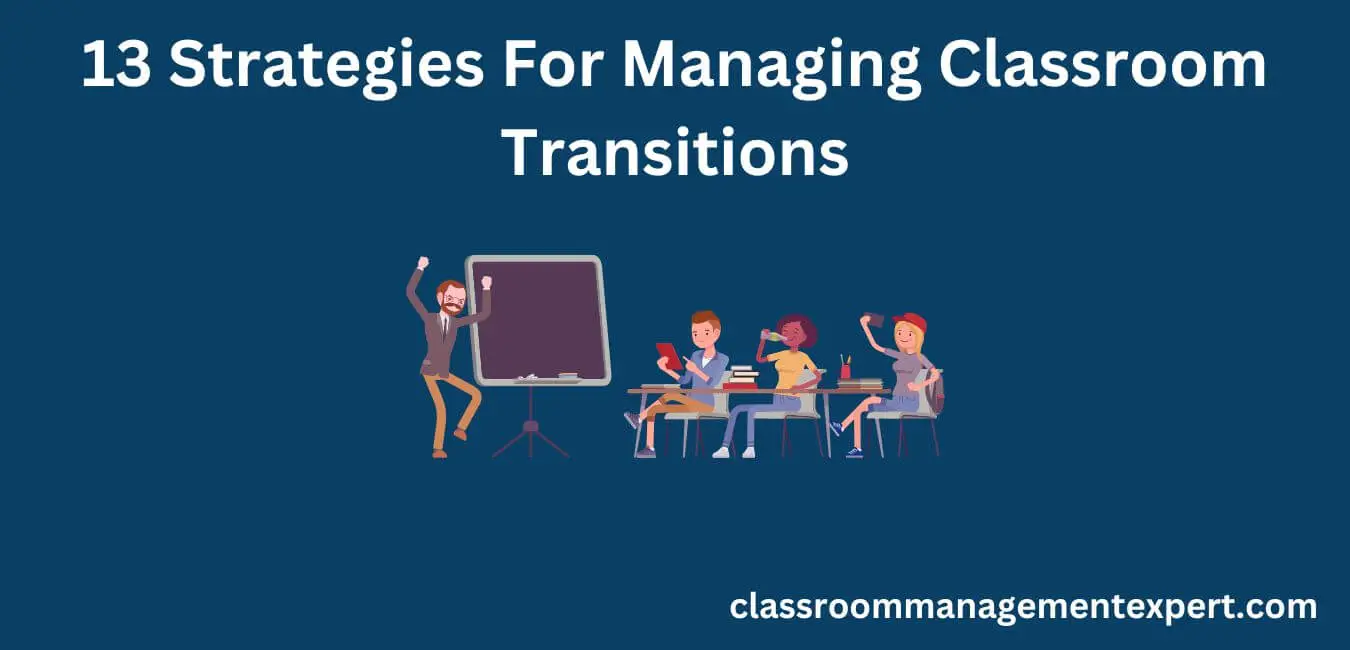One of the issues that affect our health these days is stress. Stress can be the cause of many problems in our lives.
As teachers, we must do well to avoid and manage our stress effectively. This means a lot for us and our success in the teaching profession.
In this article, we will examine the causes of stress for teachers. We will also explore some tips to help us manage it appropriately.
What is Stress?
It is the mental and emotional feeling of pressure. It makes an individual feels overwhelmed and inadequate to cope with happenings in his or her life.
Stress often makes an individual frustrated, tired, angry, anxious, and many other health issues.
Stress and Classroom Management
There is a reciprocal relationship between a teacher’s stress and his or her classroom management efforts and abilities.
That is stress affects the ability of a teacher to manage the classroom effectively. This is because a stressed teacher exhibits numerous features that are detrimental to classroom management.
For example, a teacher who is stressed easily and frequently gets angry. Meanwhile, a teacher must be able to manage his or her temper well in order to get better at managing students’ behavior.
On the other hand, poor classroom management can be a source of a teacher’s stress. This often happens when the teacher losses control of his/her classroom.
A poorly managed classroom is full of disruptive behavior that puts much pressure on the teacher, hence stress.
For example, a newbie teacher joined our team in my school. By the middle of the academic, he already faced numerous classroom management challenges such that he opted to quit. It took the intervention of seasoned teachers to convince him to stay.
Causes of Teacher Stress
There are numerous causes of teacher stress. Every teacher must consider all these sources of stress carefully when trying to manage his/her levels of stress. Below, we are going to look at these factors:
Environmental Sources
These are stressors outside the individual and the organizations that put pressure on a person in the performance of his/her roles.
They can emanate from the person’s family and relationships and other society-wide factors. Some environmental stressors are:
- Family: When a teacher has several problems in the family, he/she is likely to become stressed over them. For example, a single parent who is a teacher can become stressed if there’s no support to take care of the kids.
Also, a teacher who is threatened with divorce and other marital problems is prone to stress.
In all, if a teacher’s family doesn’t offer him or her the needed support to work peacefully, the person would be pressured, hence getting stressed.
- Societal issues: Another factor that can stress a teacher is inadequate support from society to the teacher.
Conditions of our society most often become impediments to becoming efficient in the performance of our jobs.
For example, heavy traffic can reduce the efficiency of the teacher. That is, the teacher can arrive at school and home late. This condition puts pressure on the teacher hence can increase his or her stress levels.
Another issue can be a lack of or inadequate support from parents to teachers in educating their wards. This increases tensions with teachers in managing students’ behavior. They end up becoming stressed attempting to do everything on their own to educate the students.
- Government Policy: Education policies can place a huge amount of pressure on teachers. Some policies require teachers to perform additional roles. For example, teachers at public schools often face infrastructure problems forcing them to improvise in delivering lessons. This puts pressure on teachers hence stressing them.
Organizational Sources
The conditions within an organization can be sources of staffs stress. The following are some organizational stressors:
1. Role Ambiguity: This happens when the role of the teacher and how Its performance can be evaluated Is not clear.
Here, certain aspects of what the teacher can do or not do are not clear and specific. This makes It difficult for teachers to perform up to the expectation.
This Increases the stress levels of teachers.
2. Overload of Work: When a teacher has lots of work to do, he/she can easily get stressed. This Is one of the most common organizational stressors for teachers.
For example, a colleague was made to work for 40hrs a week. This had a negative impact on her health. She was always visiting the hospital in the final days of the semester.
3. Role Insufficiency: This happens when a teacher has little or Inadequate teaching materials, Information, and other equipment that facilitate his/her work.
This often stresses teachers because they had wished to do a great job at their work but the Insufficiency In their roles and teaching materials puts pressure on them.
4. Lack of Support from Friends and Authorities: Teachers can easily be stressed If they don’t get any or much support from their colleagues.
That often happens If the organizational culture does not support collaboration among the staff of the school.
Inadequate support from school authorities can put so much pressure on teachers In the performance of their jobs. This leads to stress.
Individual Sources
Some people are more prone to stress than others. A person’s ability to avoid or get better at managing stress is partially dependent on his or her personality.
- Personality Type: A teachers’ personality type can serve as a source of his/her stress. For example, research suggests that type-A personalities are more vulnerable to high levels of stress.
This is because type-A persons are highly competitive, time-urgent, hostile, and obsessed with work.
Type-B personalities, on the other hand, are less prone to stress. This group of people is more relaxed, patient, and easygoing.
Type-D personalities are also known as “distressed” personalities. That is, they exhibit negative emotions such as anxiety, anger, hostility, depressed mood, and are more likely to avoid interactions with others. These people easily become stressed.
- Gender: One’s gender too can influence his/her susceptibility to stress. Men and women experience different levels and reactions to stress.
Women report high levels of physical stress as compared to their male counterparts.
The discussion here shows that the individual’s personality can cause a great deal of stress. Therefore, every teacher must begin to look within him/herself for the sources of his/her stress.
How to Manage Stress Effectively
As mentioned earlier, a teacher’s levels of stress affect his/her classroom management efforts and vice versa. Due to that, I suggest you do the following to help you manage your stress effectively:
Eat Balanced Diet
Maintain a healthy physical and emotional state by eating a balanced diet. That helps to promote both physical and emotional health.
Also, engage in regular exercise to refreshing yourself. Try to develop an interest In out-of-school hobbies and diversions.
This will aid you to relieve yourself of the stressful activities that happened in school.
Avoid Negative People
Avoid people or colleagues who tend to emphasize the negative aspects of educational programs and issues. Some people are pessimists and worry a lot.
These people always complain a lot and thrive on worries. Having these people in your life can expose you to bad news and negative information.
That will help you to stop worrying over unnecessary or less beneficial issues. Hence, your stress level will be minimal.
Build Collegial Collaboration
Try to develop personal and professional relationships where a healthy and balanced interchange of ideas can occur.
If your school doesn’t have a school-wide collaboration, try to build a collegial collaboration where you exchange Ideas regarding classroom management and the general teaching profession.
Doing that will help you support one another In tackling Issues arising from your work.
Be Authentic
You must learn to become authentic. Be more assertive and honest about your feelings when dealing with students, parents, colleagues, and administrators.
This will make you feel relieved of any negative emotions that you may have about people or what they do. Therefore, your chances of becoming stress will reduce.
Being authentic makes the surrounding people authentic about their feelings and emotions. This promotes a working environment that is authentic, thereby reducing possible stressors.
Be Positive
Try as much as possible to be candid and frank in your discussions. However, don’t forget to always attempt to channel your conversations towards positive and solution-oriented conclusions.
While being frank and candid, try to be positive in both speech and actions.
Also, engage in activities that will give you positive energy to perform your roles effectively.
Try as much as possible to get optimistic about students, activities, and events at your workplace. That will keep you going and help you manage stress effectively.
Do Interesting Activities
Get involved in an activity, project, or research effort that is interesting and stimulating to you professionally.
Always engage in activities such as conferences about teaching and classroom management.
That would provide you with the necessary tools to get better at doing your jobs.
Being skillful in your job will prevent you from becoming stressed. This is because you will be able to avoid costly mistakes that will make your work difficult for you.
Become a Member of Professional Organization
Join a professional organization that represents your interest and/or area of responsibility. You will always be updated with resources that can benefit you professionally.
This means any trends in managing and teaching effectively will be made available to you.
Also, belonging to a professional organization helps you meet people who share the same goals as you. Hence, you can share ideas on how to avoid and manage stress arising from your job (teaching).
Final Thought
To wrap up, stress is an important issue that you should consider as a teacher. This is because it affects your efforts to become effective at your job. It can make or unmake your classroom management abilities. This article identified the major causes of teacher stress and suggested ways of overcoming or avoiding it. I hope it will be helpful. Feel free to share it with others to also benefit.



















